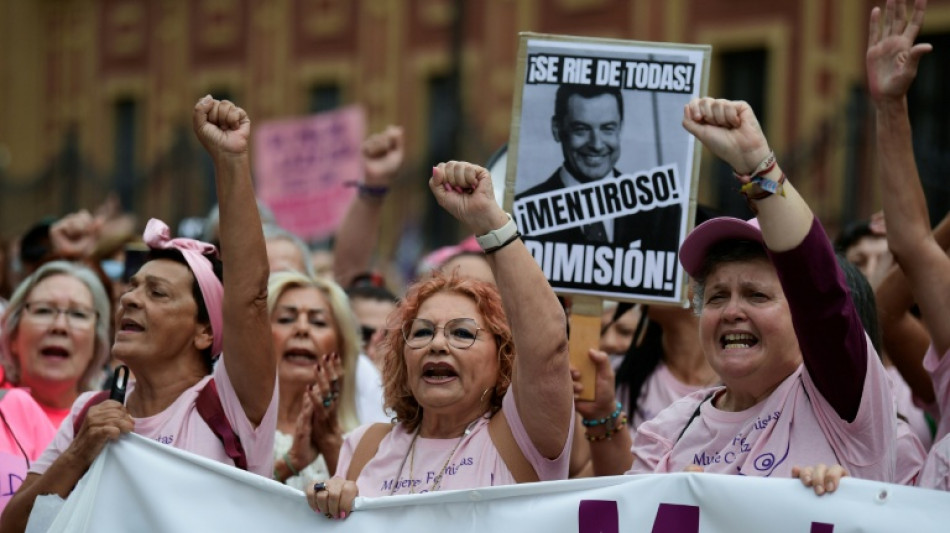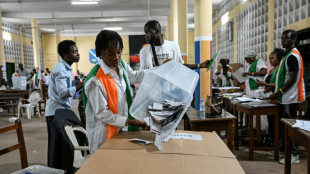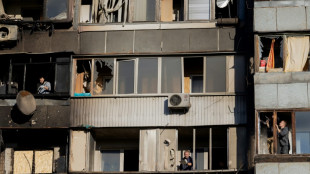

Thousands protest breast cancer screening scandal in Spain
Protesters flooded Spain's southern city of Seville on Sunday as public outrage grows over failings that led to hundreds of women not receiving the results of breast cancer screenings.
The southern Andalusia region's conservative-run government said the scandal affected at least 2,300 women who had mammograms in public hospitals in recent years.
All of the tests revealed issues or were inconclusive and would have required follow-ups, so the failure to inform patients meant potential cancer cases went undetected.
The regional authorities have so far not offered clear explanations for the failing but said they planned to boost staffing in mammography units -- a move many patients and activists have deemend insufficient.
Protests led by women erupted in several Andalusian cities earlier this month, which local media said drew thousands of people.
Regions are responsible for public healthcare in Spain's decentralised political system.
But the scandal has also stirred tension between the left-wing central government in Madrid and the right-wing regional authorities.
Heeding a call from AMAMA -- a Seville-based association of women who have breast cancer -- protesters gathered on Sunday in front of the San Telmo Palace, the regional seat of government.
"No forgetting, no forgiveness, Bonilla resign!" the crowd chanted, calling on Andalusia's leader Juan Manuel Moreno Bonilla to step down.
He has faced criticism for his handling of the crisis, which led to the resignation of his health minister earlier this month.
The chants of "our lives cannot wait!" and "screening errors are an attack" echoed throughout the Spanish city, according to an AFP reporter at the scene.
Some patients have already announced plans to file complaints against the regional government.
Bonilla, whose term ends next year, apologised to the patients earlier this month.
The Spanish health ministry also announced a more in-depth study of cancer screening programmes in the country, starting with those in Andalusia.
B.Puglisi--RTC



